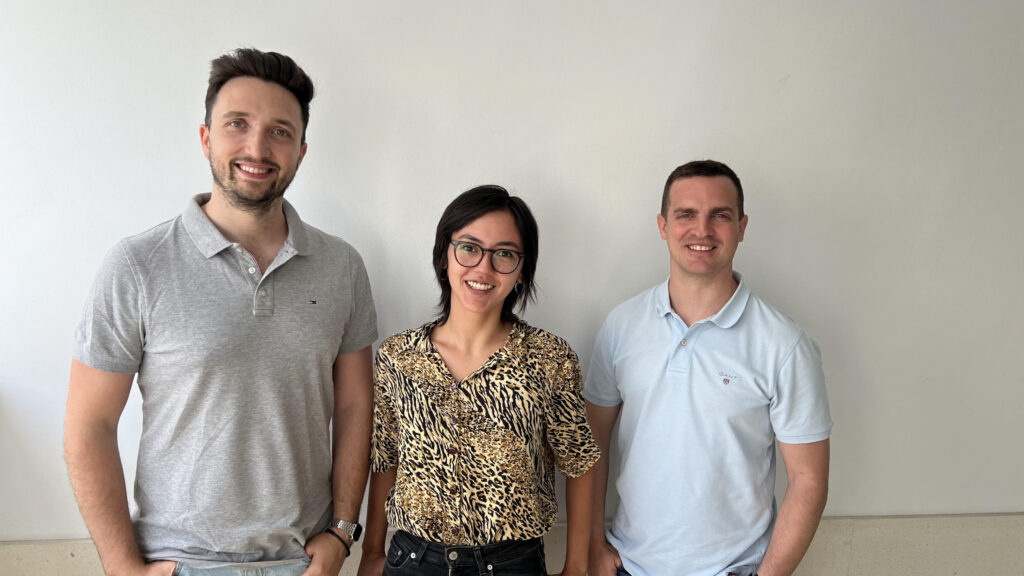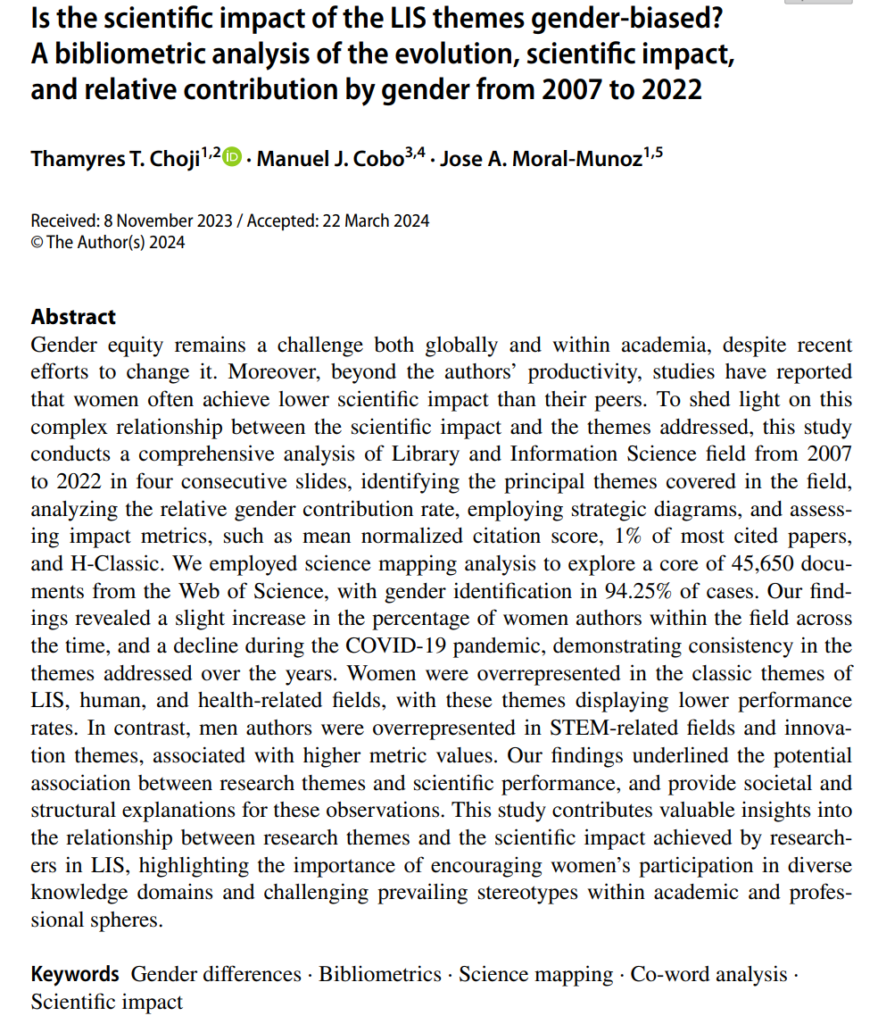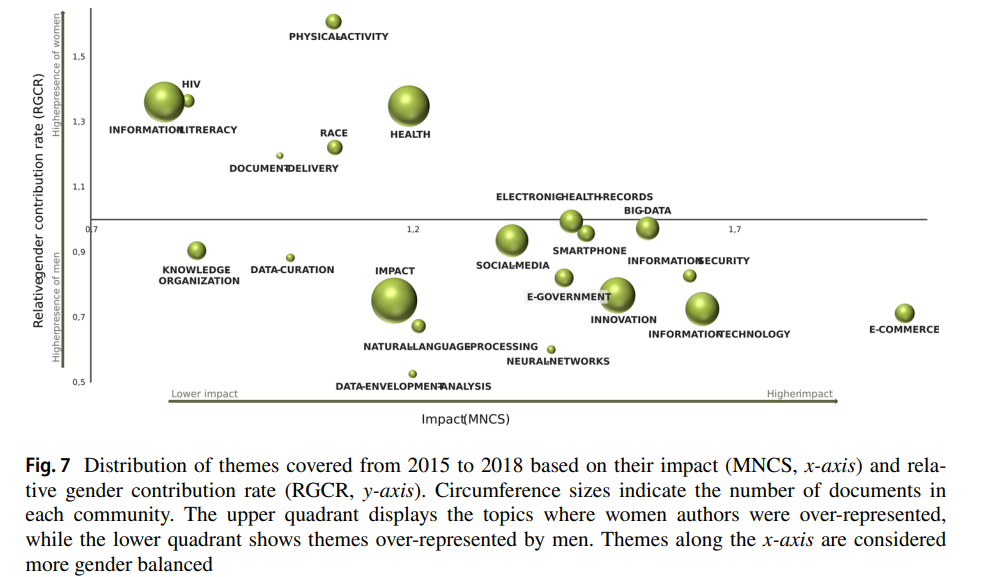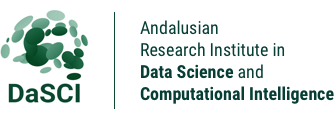The gender gap is visible in research topics and impacts on scientific impact
6 June, 2024
A recent study carried out by DaSCI-UGR researchers and the University of Cadiz uses AI to analyse the majority of scientific publications by men and women in the field of library and information science. It is well known in the literature that there is a gender gap in scientific production and impact, where women tend to receive fewer citations than their male colleagues. The results of this study reveal a relationship between the topics addressed and the academic impact achieved, revealing gender disparities in academia.

Previous research has pointed to different factors that help to explain this inequality. Possible factors include women’s late entry into the scientific field, productivity, lower levels of international collaboration, self-citation and the diversity of topics addressed. To find out whether research topics contribute to this gender gap, the researchers divided articles published in bibliometrics and documentation from 2007 to 2023 into two sets, those whose authors were mostly women and those whose authors were mostly men.
What they found was that, in the area analysed, men tend to favour more STEM (Science, Technology, Engineering and Mathematics) related topics, such as Machine Learning and computer science in general, which tend to have a greater scientific impact. Whereas women are more inclined towards more traditional library, social and health sciences subjects.
This in some ways mirrors the trends seen in the computer science and health sciences professions. According to the Women’s Institute, the presence of women among university graduates in Engineering and Architecture has risen from 9% in 1982 to 29.19% in 2021. In Health Sciences, the percentage of women has risen from 53.8% in 1982 to 71.87% in 2021.

In addition, the article found that the number of female perpetrators, which has a slight increase over the years, declined visibly during the years 2019 to 2022, coinciding with the period of the COVID-19 pandemic. This finding is in line with other studies that identified that women were disproportionately affected during the pandemic due to, among other things, increased household and parental care work, which may have created cumulative disadvantages at the workplace.
The study analysed thousands of documents, in which the gender of most authors could be identified. Through an analysis of the scientific production and citations received in 4 periods from 2007 to 2023, an unequal gender representation in various topics was found. In each of the periods, about 20 topics were identified, with women overrepresented in traditional library and information science topics (such as Librarianship and Information-literacy), as well as topics related to the humanities and health. Meanwhile, the topics with the highest presence of men were those related to innovation and STEM, which received the highest number of citations compared to the previous topics.

The Andalusian Inter-University Institute in Data Science and Computational Intelligence, known as DaSCI Institute, is a collaborative entity between the universities of Granada, Jaén and Córdoba. It is dedicated to advanced research and training in the field of Artificial Intelligence, with a particular focus on Data Science and Computational Intelligence. The institute brings together an outstanding group of researchers working on joint projects, promoting the development and application of innovative technologies in various sectors. With the aim of becoming a benchmark in its field, the DaSCI promotes the transfer of scientific knowledge to the socio-economic environment, thus contributing to technological progress and the digitisation of industry.
Contact:
- Manuel Jesús Cobo Martín mjcobo@decsai.ugr.es
More information:
- Choji, T.T., Cobo, M.J. & Moral-Munoz, J.A. Is the scientific impact of the LIS themes gender-biased? A bibliometric analysis of the evolution, scientific impact, and relative contribution by gender from 2007 to 2022. Scientometrics (2024). https://doi.org/10.1007/s11192-024-05005-3
- Link al artículo https://link.springer.com/article/10.1007/s11192-024-05005-3





